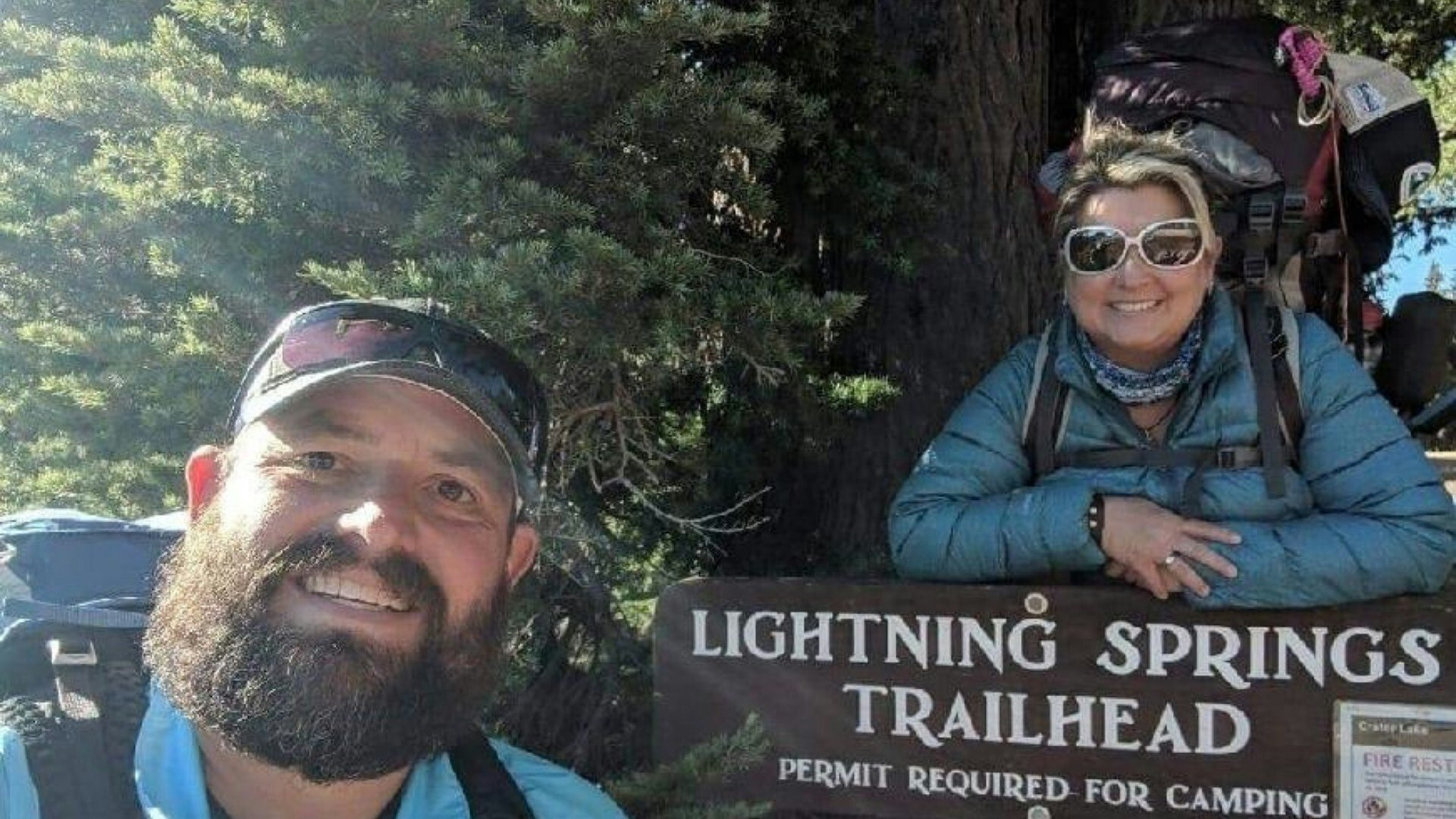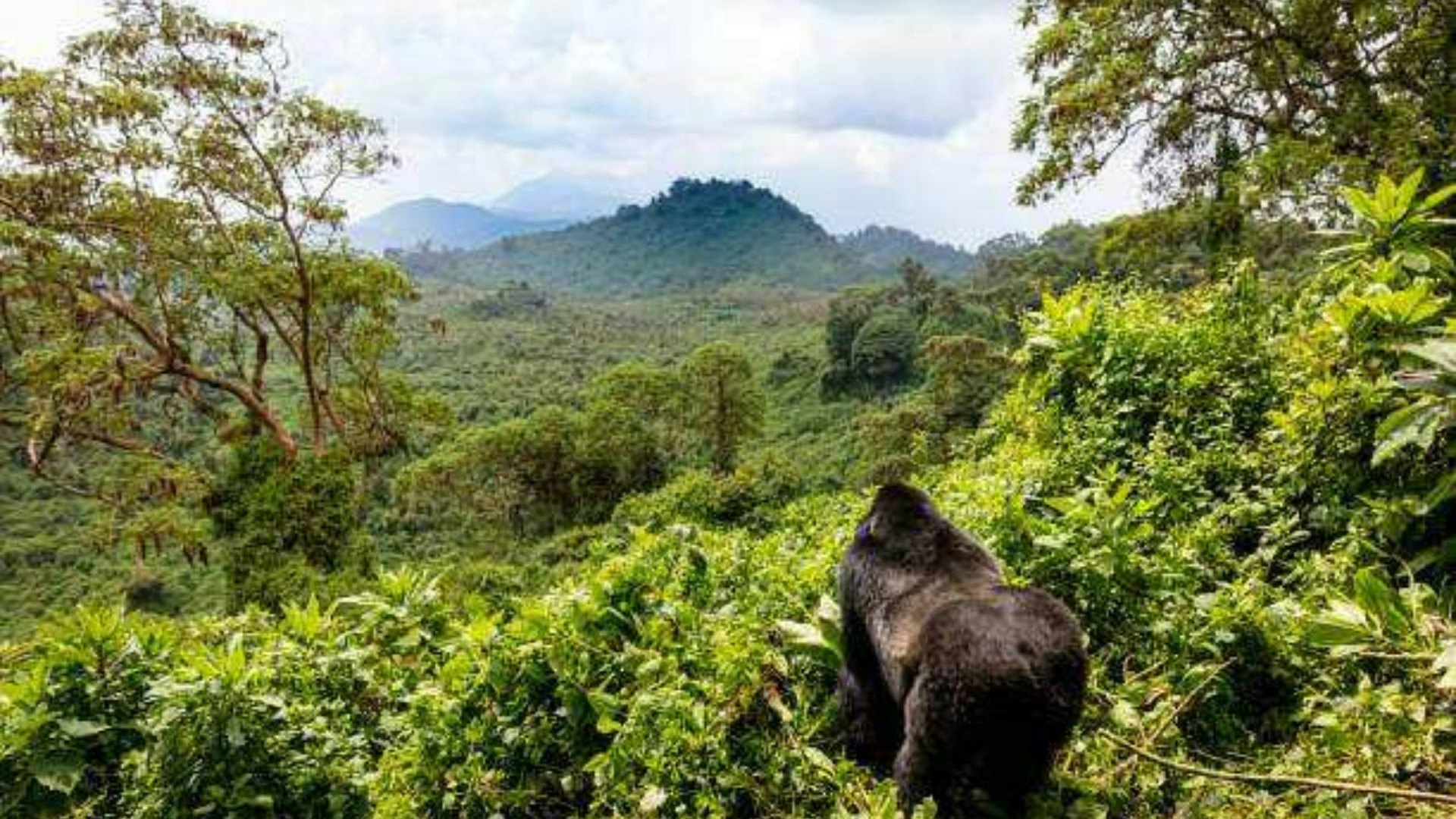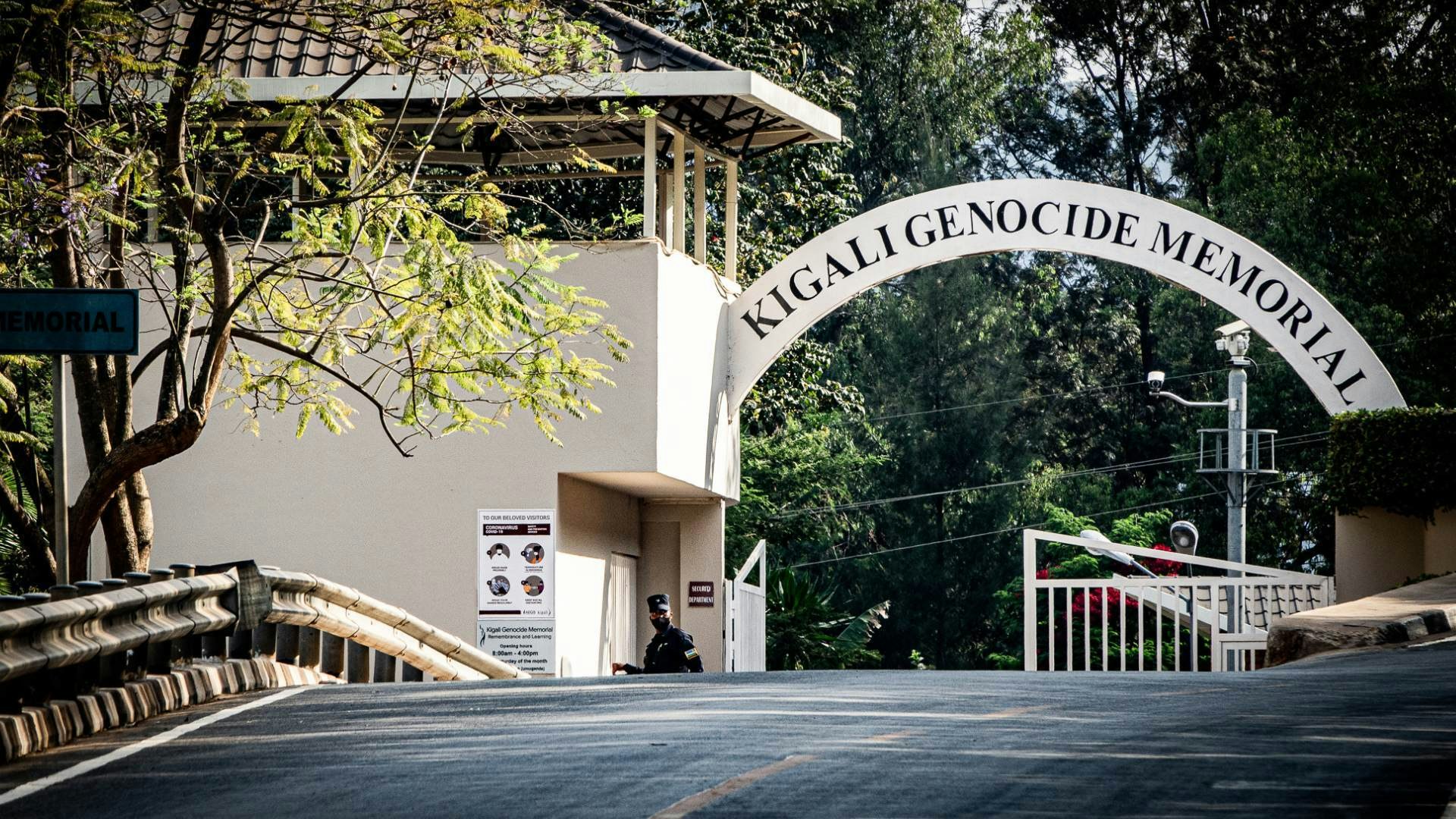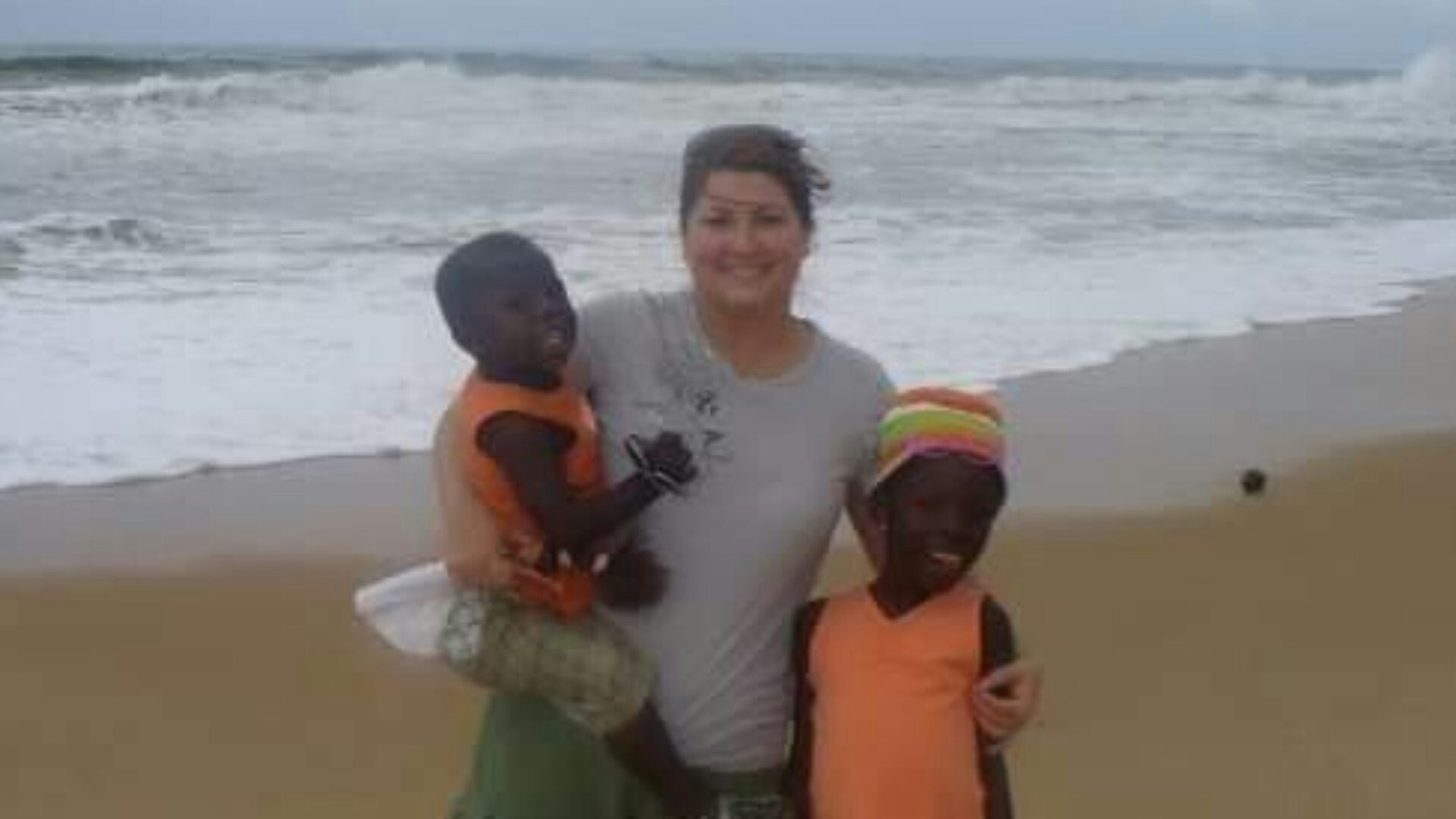Patrick and Heather Pasquinelli are devoted parents and teach at the Arapahoe Charter High School on the Wind River Indian Reservation. They have deep ties with their students – so much so that they’re raising five children from the reservation, as well as two adopted children from Liberia, West Africa.
It was their passion for children that prompted the pair to apply for a grant that will allow them to study the genocide that happened during the Rwandan Civil War in 1994.
It was a horrific chapter in African history in which close to 800,000 men, women and children of the Tutsi tribe were murdered by armed Hutu militias.
‘I Can Relate … On A Lot Of Levels’
Special education and high school English teachers respectively, Patrick and Heather chose to work in one of the most challenging school districts in Wyoming.
“I grew up really, really, really poor,” said Heather. “So, I am able to connect with those kids, because I've lived some of their lives – not to the extent that they do on the reservation, but I didn't have a typical upbringing, and I can relate to them on a lot of levels.”
That relationship with her students, as well as the children she and Patrick have chosen to raise, led Heather to a greater sense of empathy for what the Native American tribes endured in the 1800s, watching their way of life crumble as their lands and freedoms were stripped from them.
“I've been a holocaust educator for most of my career, almost 20 years,” said Heather. “I'm a teacher fellow for the United States Holocaust Memorial Museum in Washington, D.C.”
And she’s using that background to make connections with the Native American children she teaches.
“This year at Arapahoe Charter, I teach a class called Holocaust and Genocide Studies Through Literature,” she said. “And the plan is to be able to study genocides across the globe, and then also talk about the Native American genocides, because I think there are a lot of similarities.
“Not that it's the same experience, but to be able to see globally that other people have also suffered historical trauma.”

‘100 Days Of Slaughter’
Although it lasted just 100 days from April 7 through July 15, 1994, ethnic Hutus slaughtered about 800,000 members of a rival tribe, the Tutsis, in a bloodbath the BBC has described as “100 days of slaughter.”
Most were killed in their own villages or towns, often by people they knew. No Tutsi - or sympathizer - was safe, as Hutu gangs sought out victims hiding in churches and in schools.
Victims were killed with rifles and machetes, and even those who escaped with their lives could not escape the violence. An estimated 250,000 to 500,000 women were victims of sexual violence during the genocide.
The sheer numbers of the dead resulted in "killing fields," with bodies piled upon each other or dumped into rivers, impacting the vital fishing industry. Often the killing only ended because there was no one left to murder.
Scholars estimated 500,000 to 600,000 people died in those 100 days - around two-thirds of the Tutsis who lived in Rwanda at the time.
Multicultural Household
To begin to understand the Pasquinellis’ drive to study such tragedies, one only has to look at the mosaic of cultures Heather and Patrick have created in their home.
“We've adopted three of our five Native American children,” Heather told Cowboy State Daily. “And we have permanent guardianship of the other two.”
Heather and Patrick’s foster children Joshua, 13, and Bubba, 9, are as much a part of the Pasquinelli clan as their legally adopted children: True, 7, Kai, 4 and Mara, 8. Then there are the two older siblings adopted from Liberia, West Africa, 16 years ago – Gabrielle, a 23-year-old student at Casper College, and Jack Matthew, a 19-year-old senior at Lander High School.
And the family doesn't stop there.
“I have three biological children from my first marriage,” said Heather. “In fact, Jordan (the oldest) teaches social studies at Arapahoe Charter with us.”
Life-Changing Experiences
This past summer, Heather completed a fellowship with The Olga Lengyel Institute for Holocaust Studies and Human Rights. What she learned there piqued her interest in studying the Rwandan genocide.
“Several people in my group had gone on a trip to Rwanda,” she said. “The people that went were like, ‘You have to go – it will change your life.’”
Heather said that she already felt a connection to the plight of African children after adopting their two from Liberia in 2007.
“They had a civil war, that’s how our kids were orphaned,” she said. “I know that Liberia changed how I looked at the world, too – and many of the issues that I saw in Liberia I see on the reservation, too, with poverty.”
The idea of returning to a war-torn country halfway around the world seemed out of reach for the Pasquinellis.
Then a colleague told them about Fund For Teachers, a nonprofit that issues grants to educators who wish to extend their own knowledge to share experiences with students.
Grant-Funded Study
The Pasquinellis were thrilled when they were notified that Fund For Teachers, through the John P. Ellbogen Foundation, had awarded them $10,000 to travel to Rwanda.
The award, which was announced March 28, will allow the couple to “experience memorial sites associated with the Rwandan genocide, to identify pertinent and applicable learning experiences that help students extend their knowledge of the world outside of their Native American reservation,” according to the announcement, “as well as knowledge about generational trauma, poverty and displacement that extends beyond this community.”
“We have a heart for Africa because of our kids. And we have a heart for the reservation, because of our kids,” said Heather. “And so we wanted to combine those things and make an experience for us, but also something that we can share.”
The World Outside My Shoes
The couple will travel to Rwanda from July 9-22, and while they don’t have the full itinerary yet, Patrick said they do know some of the places they’ll study.
“One of the things that I'm most excited about is we will go to a village where the Hutus and Tutsis are living together,” he said. “And we will get to meet some of the people who experienced the genocide, who lived on both sides of it, who lived through it.”
The trip is being organized by an organization called The World Outside My Shoes, which was founded by Carl Wilkens, the only American to stay in Rwanda - and survive - during the genocide.
“When everybody fled, all the Americans and everybody left and they evacuated the country. He stayed behind to help,” said Heather. “And so now he runs this program to help educate teachers.”
Restorative Justice
What is of great interest to Heather is the fact that tribes that were once mortal enemies have moved past the horrors of the past and have learned to co-exist.
“The Hutus killed the Tutsis,” said Heather, “and they live together peacefully now. They did a lot of restorative justice – and that's what this trip is about. They’ll focus on teaching us about that restorative justice and how they rebuilt their communities.”
And the Pasquinellis hope to pass those lessons to their students on the Wind River Reservation.
“The Arapaho people believe that the children are sacred, and we want to see them take that honor seriously,” said Heather. “They're the next generation of leaders on the reservation, business council members, all of those things. And to have that knowledge, they can change and shape the future of the rez.”
Photos:
Top: The Pasquinelli family.
Gallery No. 1: The beautiful and lush jungles of Rwanda are home to gorillas and other wildlife. A pair of Wind River Indian Reservation teachers will travel there in July to study the country's 1994 genocide that left nearly 800,000 people dead.
Gallery No. 2: Memorial to the 100-day genocide in 1994 that killed nearly 800,000 people in Rwanda.
Gallery No. 3: Heather Pasquinelli in Liberia.
(All photos courtesy Patrick and Heather Pasquinelli)








